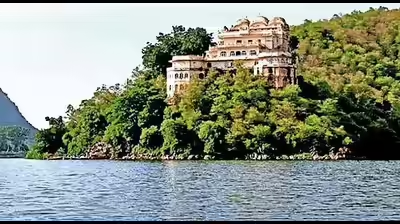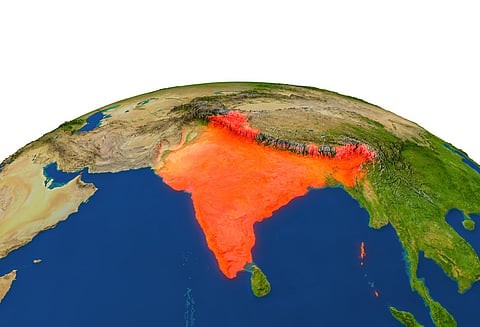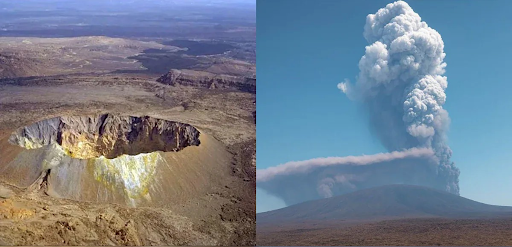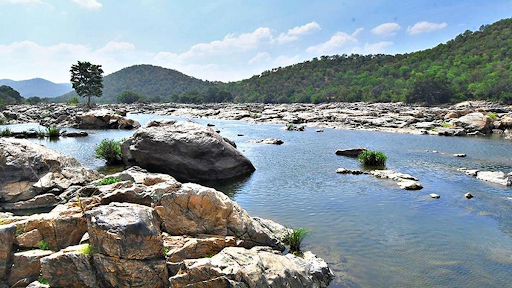Description
Source: Google.com
Disclaimer: Copyright infringement not intended.
Context
Contaminated Bhavani River water in Palaiyur village has been declared unsafe for drinking, leading to the closure of illegal dyeing units
About Bhavani river
- It originates in the upper regions of the Nilgiris of Western Ghats
- It flows across three districts of Tamil Nadu - Nilgiris, Coimbatore, and Erode districts
- It is a major tributary of the Cauvery River
- It is the second largest river in Tamil Nadu.
- At the town of Bhavani, after traveling for 185 km distance the river confluences with Cauvery river.
- Most of the river water is used for agriculture.
- It is spread over an area of 6,200 square kilometers
- Out of which,
|
nine percent in Kerala
|
|
eighty seven percent is in Tamil Nadu
|
|
four percent in Karnataka
|
Tributaries of Bhavani River:
- West and East Varagar are the largest tributaries of the Bhavani River which come from the Nilgiris.
- Bhavani Sangameshwarar Temple, is a prominent pilgrim center, situated at the meeting point of both the rivers - Bhavani and the Cauvery Rivers
- The Bhavanisagar dam is constructed on this river.
- It is one of the world's largest earthen dams playing a crucial role in irrigation and water supply.
- The Bhavani River pass through Silent Valley National Park in Kerala before flowing into Tamil Nadu.
- Silent Valley national park is located in the Southwestern corner of Nilgiris.
- It is known for many highly endangered species such as
- lion-tailed macaque
- tiger
- gaur
- leopard
- wild boar
- panther
- Indian Cive
Sources:
TIMES OF INDIA
|
PRACTICE QUESTION
Q. What prompted the closure of seven illegal dyeing units near the Bhavani River in Palaiyur village?
A) Government policy changes
B) Public protests
C) Water contamination affecting public health
D) Economic downturn
Answer: C) Water contamination affecting public health
Explanation:
The Tamil Nadu Public Health and Preventive Medicine Department found that untreated effluents from illegal dyeing units contaminated the Bhavani River water in Palaiyur village, rendering it unsafe for drinking and leading to health issues among residents. This prompted authorities to close seven illegal dyeing units near the riverbank to protect public health.
|





